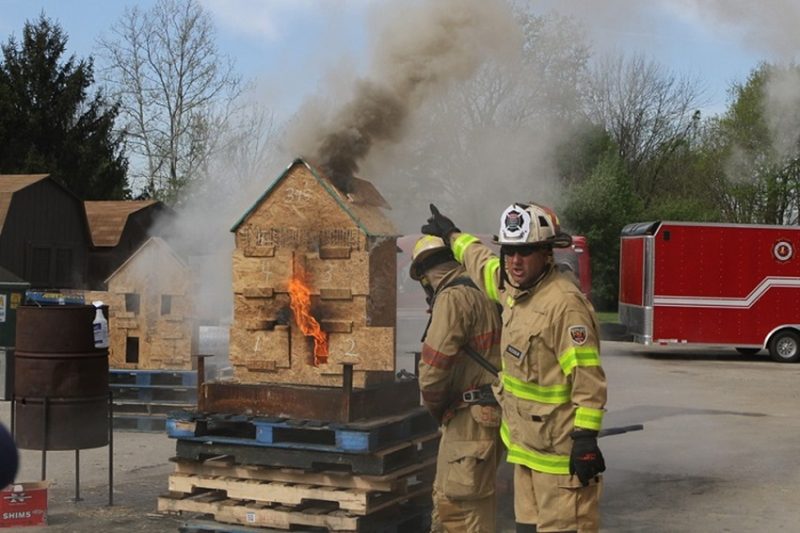Medford, OR — The first night of a critical training exercise for several fire departments in Josephine County got underway on Monday, with firefighters honing their skills in a realistic and challenging environment. The scenario for this year’s training simulates a fire inside a homeless shelter, taking place in a three-story commercial structure.
Fire Chief Jimmy Sanchez outlined the exercise, which aims to prepare first responders for the complexities of fighting fires in unique, high-risk settings. Volunteers and mannequins were placed throughout the church building, serving as fake victims, while artificial smoke filled the structure to simulate the disorienting and hazardous conditions of a real fire.
“This training is all about improving our response capabilities,” Chief Sanchez said. “We’re focusing on communications, incident command, and mutual aid between departments. This exercise allows us to work together more effectively, ensuring that when a real emergency occurs, we can respond quickly and safely.”
The simulated fire scenario is designed to push firefighters to think on their feet and work as a unified team, utilizing resources from different departments and agencies. In addition to practicing basic firefighting techniques, firefighters are also tested on their ability to coordinate with mutual aid units and ensure the smooth operation of incident command.
As part of the exercise, the departments will rotate through shifts, with “A,” “B,” and “C” teams taking turns on duty. This ensures that all personnel have the opportunity to participate in the training over a three-day period. The training will continue on Tuesday and Friday, with D Street between 6th and 7th Streets closed from 5:00 p.m. to 8:00 p.m. to accommodate the drills.
The Josephine County Fire Departments are hoping that the hands-on training will enhance their readiness for real-life emergencies, particularly in complex environments like homeless shelters, where the risks and challenges are heightened.
“We’re preparing for all possibilities,” Sanchez added. “The more prepared we are, the better we can protect our community and save lives when it matters most.”

